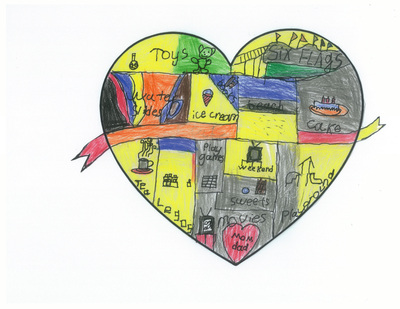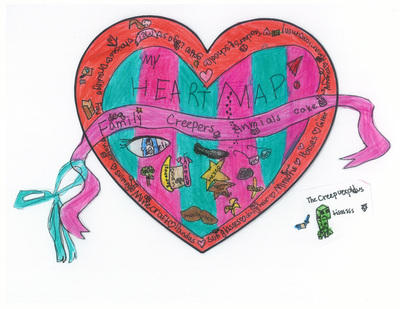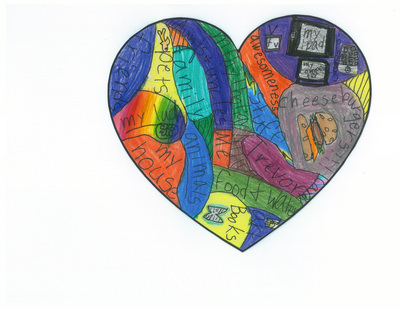Overview
|
I teach to the Common Core State Standards for Writing. In all of the schools where I have worked, I have primarily developed my own curriculum, drawing on resources from Write Tools, Ralph Fletcher, Mem Fox, and Writer's Workshop.
|
|
Common Core State Standards for Writing
Second GradeText Types and Purposes
|
Third GradeText Types and Purposes
|
Fourth GradeText Types and Purposes
|
Heart Maps
In order to build students' endurance and confidence as writers and teach them the revision and editing processes, I primarily use strategies from How to Write Your Life Story by Ralph Fletcher and anchor texts from Marshfield Dreams: When I Was a Kid by Ralph Fletcher. During informal writing conferences, I use the record available here.
Exemplars
Friendly Letters and Thank You Letters
In order to teach students how to write both friendly letters and thank you letters, I write sentence frames to scaffold their correspondence. In the past, I have matched students with parent volunteers with whom they corresponded throughout the year in a Google Doc and wrote prompts in which they thank our principal, parent volunteers, field trip docents, and relatives. During informal writing conferences, I use the record available here. Writing paper is available here.
Exemplars
Opinion Pieces
In order to teach students how to write opinion pieces, I primarily use prompts from The Kids' Book of Questions by Gregory Stock. During informal writing conferences, I use the record available here. A binder full of sentence frames, descriptive words, and exemplary paragraphs from past students is available here. Writing paper is available here.
Exemplars
- Do you like school or do you dislike school?
- How can we influence the outcome of an election?
- How was your story inspired by Roald Dahl?
- If you could have a round-trip ride in a time machine and travel any distance into the past or future, where would you want to go and why?
- If you could have one magic power, what would it be and why?
- Imagine that your principal told you he wanted to make school better and would change it in any one way you suggested. What would you tell him to do?
- What are the most important things you learned last year?
- What is the most important life lesson you have ever learned?
- What is your favorite Roald Dahl book?
- What makes your principal great?
- Who is your biggest hero? Why do you think this person is so terrific?
- Would you rather have a strict teacher who was fair and taught you a lot or one who was relaxed and fun but didn't teach you much?
Informative Texts
In order to teach students how to write informative texts, my teaching partners and I created prompts based on students' field work. During informal writing conferences, I use the record available here. A binder full of sentence frames, descriptive words, and exemplary paragraphs from past students is available here. Writing paper is available here
Exemplars
Fictional Narratives
In order to teach students how to write fictional narratives, my teaching partners and I developed a project with Envision Learning Partners. I also draw from Mem Fox's advice for children's book authors. During informal writing conferences, I use the record available here. A binder full of descriptive words and exemplary stories from past students is available here. Writing paper is available here.


